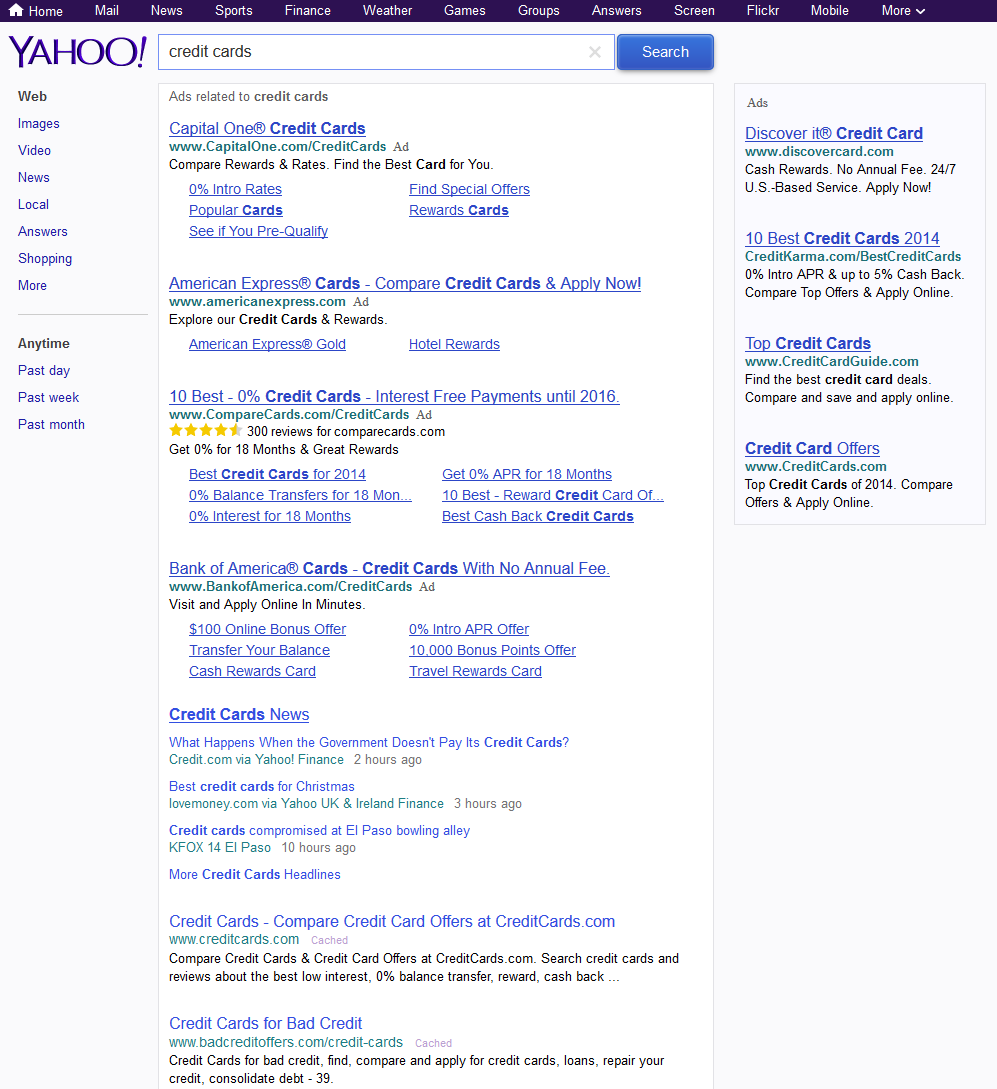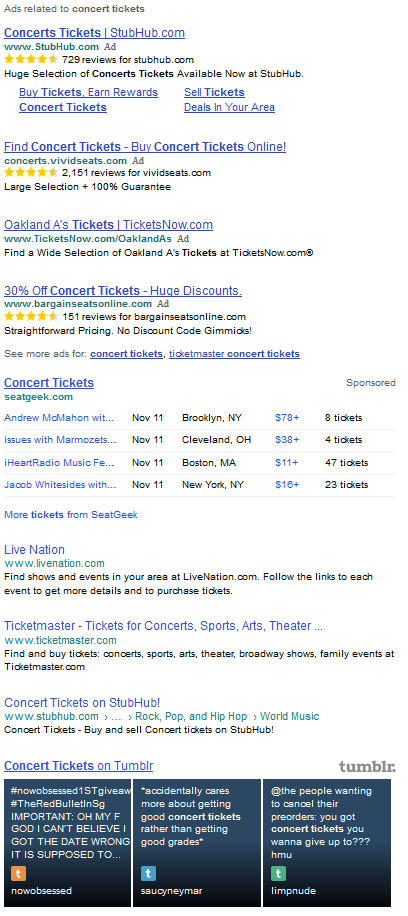“ONE DAY I’ll be a full time blogger!”
‘V’ – my wife – must have heard that statement 100 or more times in 2003-2004.

Me posing for my first ever press photo in 2003. Out of shots all my neighbours were watching on and wondering why I was videoing a guy taking a photo of me while sitting in my front yard.
It would usually be accompanied by a spread sheet and/or chart in which I showed her how the earnings from my blog had grown from $9 per month to $11 per month and me excitedly talking about how if things kept growing like that I’d be full time…. in 9 years time.
Back in those days I spent a lot of time dreaming about my future as a full time blogger.
I remember laying in bed at night, hoping it would happen and wondering what opportunities might open up to make it a reality.
Those of you who have read the ProBlogger hard cover book know the story of how ‘V’ heard me talk about my ‘dream’ one time too many and challenged me to take my blogging seriously.
In short, she challenged me to start treating my blog as a business ‘today’ rather than hoping it might be one at some point in the future.
Note: I wrote about this in my post ‘The #1 Reason My Blogging Grew into a Business‘
That challenge changed my mindset and was a huge part of making my dreams and hopes a reality.
We CREATE our Future
I recently came across this quote:
“The future is not some place we are going, but one we are creating. The paths are not to be found, but made. And the activity of making them changes both the maker and the destination.” – John H. Schaar

We don’t arrive at our future… we create it!
I wish I’d heard that quote back in 2003 when I began to experiment with making money blogging.
It’s not that there’s anything wrong with ‘dreaming‘ of ones future. I just keep meeting bloggers (and people in other fields too) who seem to be stuck in the ‘dream’ phase.
The reality is that nobody really gets anywhere just by dreaming. There needs to come a time to ACT.
Just Do It
Do you dream of your blog one day being bigger, better, more profitable, or bring you better opportunities?
Just Do It!
Your future isn’t something that will just magically happen to you – you make that future.
So the time is now to begin moving in that direction through action!
Is it All Too Big?
Of course, giving the advice ‘just do it’ might be the kick up the pants that some people need to get moving but many bloggers I meet feel overwhelmed by all that lays ahead in order to create their dreams.
I often here one of two things from bloggers facing this:
- There is too much to do
- I want to do it perfectly
Both of these statements can cause paralysis and put your future on hold.
Here’s my advice to you… (and I’m really writing this for me as well… because I feel both of those things too)…
Start With Something Small
Choose one small thing to start with that will move you toward your dream and do it to the best of your ability (tweet this).
Let’s break that down:
- Choose One Thing – if you’re feeling overwhelmed by the many things you need to do, you can end up doing nothing or trying to do everything, but failing. Doing one thing well, and then moving onto the next thing, will take you further than either of those options.
- Do a Small Thing – if you’re currently ‘stalled’ you need to get momentum so choose a smaller thing to get the wheels rolling. Achieving that small thing will give you energy to tackle the next bigger thing.
- Choose something that will Move You Toward Your Dream – it’s so easy to be distracted by tasks that seem like a good idea but aren’t really important in the scheme of your goals. Choose something that is directly tied to your ultimate goal (I’ll give you some examples below).
- Do it to the Best of Your Ability – if you only ever do things you can do perfectly, you may never do anything! Do it as well as you can now and perfect it later. By starting you’ll learn so much and in the long run will produce something great.
What I’ve outlined above has been a strategy I’ve used many times over the years. Let me give you some practical examples.
Example 1 – Starting dPS
I put off starting Digital Photography School for a couple of years before I actually launched it (I’ve never admitted that before).
I had previously had a camera review blog that did well but I always dreamed of starting a more ‘tips’ related photography blog. I thought it’d be more satisfying to write and would have more potential to grow a relationship with readers.
I had every excuse in the book not to start dPS. I already had too much to do. I didn’t have the money to invest into a custom designed site. I doubted my own ability to write content on the topic. I couldn’t find the right brand/domain name…
The list went on.
However, I had the dream and one day I realised that if I didn’t actually start the blog that I’d never have any chance of arriving at that dream. So I started small.
- I made a call on a brand and domain name – It wasn’t perfect but it allowed me to start
- I started on GoDaddy Hosting – I knew it wasn’t the best option but it allowed me to start
- I started with a free WordPress theme – it wasn’t as professional or customised as what I saw in my dreams but it allowed me to start
- I wrote a handful of posts – I wanted to have more in my archives but it allowed me to start
- I started with comments switched off to allow me to focus on creating more content – doing so fell short of my vision for a ‘community’ driven site but it allowed me to get moving

The design of dPS when it launched using a free theme.
When the blog launched I remember looking at it with a mixture of:
- Dissatisfaction at all the things I knew I could have done to make it better
- Immense pride that I’d actually got the ideas out of my head and had finally implemented something
With the ball rolling, I was able to improve and grow what I was doing.
I moved to better hosting (and have done so 3 times now). I moved towards a custom design (we’re about to launch our iteration of the design). I’ve since published over 3800 posts and developed a team of writers. I switched on comments and added a forum area to build community.
The site is now 10 times bigger than any blog I had at the time I started it. It is still not perfect by any means (I have a long to do list) but it is a lot closer to my dreams than ever before.
Example 2 – My First eBook

My First eBook (now no longer available as we updated it)
I shared this story at the ProBlogger Event last year but don’t think I’ve written a post about it.
After a year of starting and then evolving Digital Photography School I began to see the opportunity to create a teaching product to sell on the site. I wasn’t sure at first what format would be best (eBooks, courses, events or something else) but knew there was an opportunity there.
I gradually settled on the idea of an eBook to test the waters with my audience but procrastinated and made excuses on why I should delay doing it for another 12-18 months.
Again my list of excuses was long and I justified my inaction with things like:
- not having time to write and develop an eBook
- not knowing how to set up a shopping cart
- not knowing how to design or format an eBook
- doubts about knowing enough about the subject matter
I put off the creation of that first eBook for a couple of years but managed to snap myself out of the paralysis and decided to start.
I decided to write the eBook about Portraiture – the topic my readers asked the most questions about and the one that I knew most about.
- As I was time poor, I decided to get up 15 minutes earlier every day to create the eBook. I would have rather been able to set aside a week or two to work solidly on it but I had blogs to run and a newborn baby at home. I had some major sleep deprivation already so figured 15 minutes less sleep a day wouldn’t hurt! It wasn’t the ideal way to write – but it allowed me to start.
- I decided to use some repurposed blog posts as the basis for the eBook. I’d rather have written it all from scratch but this approach allowed me to start.
- I decided to outsource the design but kept it as simple and clean as possible to save on cost. I’d have rather had a beautiful/rich design but it allowed me to start.
- I decided on a relatively simple and inexpensive shopping cart set up. I used e-junkie (aft) and synced it with PayPal. It wasn’t the most feature rich solution but was relatively east to set up and didn’t hold me back on launching.
- I hada relatively simple launch. We launched it over 8 days with a pretty simple sales page and sales email to my list. I made a lot of mistakes in that launch and have a much more sophisticated process these days but I got the product launched!
I look back on the creation and launch of that eBook now with a mix of embarrassment at how simple it all was and pride at what I achieved as someone with no experience in creating an eBook.
It could have been A LOT better on many fronts but it was the beginning of something that has transformed what I do.
That eBook sold 4800 copies during its launch (bringing in a total of $72,000) which at the time completely blew me away (in the years after it sold a lot more) but the income from it wasn’t the best bit.
The most valuable part of creating that eBook was the lessons I learned in doing it.
That eBook and its launch became the template for future eBooks. I have now published a total of 12 on dPS, 6 here on ProBlogger and 1 on SnapnGuides.
The creation process of our eBooks has changed a lot (we no longer use repurposed content, now use editors, proof readers etc and have evolved the design quite a lot) and our launches are a lot more sophisticated but it all began with 15 minutes per day and doing the best I could!
More Quick Examples
This pattern of small steps towards big dreams is something that I could give you many more examples of.
Like how I got the ProBlogger hard cover Book published. It started as a draft for an eBook and some content that Chris and I had published on our blogs.
And how the ProBlogger Event was started. This has grown to be an annual event for 400+ bloggers but it started as a hastily arranged day for 100 bloggers in a dodgy suburban hotel.
Like how I developed 31 Days to Build a Better Blog. It started as a series of blog posts that evolved into a quickly produced eBook which grew again into the best selling ProBlogger eBook that we offer today.
And how I developed the ProBlogger Queensland Competition. It started as a crazy idea I got while sitting in an airport. I tweeted something and it ended up being one of the biggest campaigns I’ve ever done with a brand.
I’m certain that others reading this post would have more personal examples – I’d LOVE to see them in comments below.
Choose 1 Small Thing…
Let’s return to the take home advice…
Choose one small thing to start with that will move you toward your dream and do it to the best of your ability (tweet this).
I can’t emphasise enough how powerful doing this has been in my own business (and my life in general in other areas).
Give it a go – I can’t wait to see what impact it has for you!














































